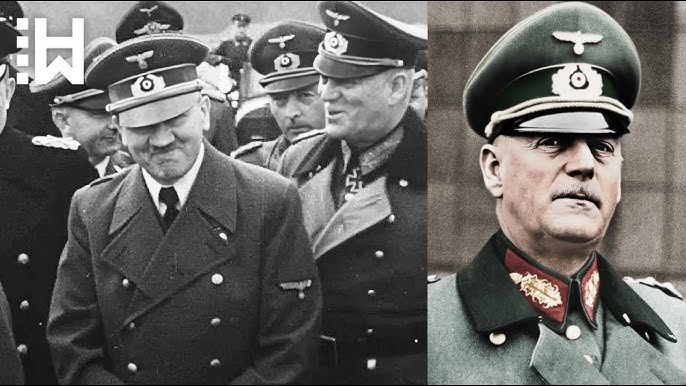Decades after his death, investigators uncovered a hidden archive that exposes the darkest secrets of the 20th century.
More than half a century after Field Marshal Friedrich Paulus — the man who surrendered the German Sixth Army at Stalingrad — died in 1957, his mansion in Dresden has yielded a discovery so shocking it’s left historians and intelligence agencies scrambling for answers.
What began as a routine examination of his belongings has turned into a geopolitical bombshell. Behind a concealed wall in his villa at Prostrasa 10, investigators uncovered a hidden chamber — untouched for decades — filled with sealed envelopes bearing Soviet insignia, coded maps, and personal letters that could rewrite everything we thought we knew about the aftermath of World War II.
Inside the room were handwritten notes and draft speeches, some denouncing both Adolf Hitler and Joseph Stalin. One document, reportedly titled “Between Two Tyrannies,” describes Paulus’s alleged disillusionment with both regimes — and hints at a secret network of officers who opposed Nazi and Soviet ideologies alike.
💥 Among the files were several letters marked “confidential,” allegedly exchanged with Soviet military officials during his captivity — correspondence suggesting a mutual exchange of intelligence that may have shaped early Cold War operations.
The Stasi reacted immediately after the discovery — sealing the chamber and classifying its contents as “politically explosive.” Historians now believe that East German authorities intentionally buried the findings to prevent a diplomatic scandal that could have embarrassed both Moscow and East Berlin during the height of the Cold War.
But what exactly were they hiding?
Were these files proof of a secret collaboration between remnants of the Nazi command and Soviet officers?
Or were they the confessions of a man haunted by guilt, trapped between loyalty and survival?
What’s certain is this: the villa, once a symbol of control and silence, now stands as a monument to suppressed truth. The documents—if ever made public—could expose how far the political manipulation of history truly went.
👁️🗨️ Experts are calling this one of the most significant postwar discoveries in decades, warning that what lies in those files might not just challenge the reputation of Friedrich Paulus… but alter our understanding of World War II itself.
👉 What else lies buried in the shadows of history — and who still wants it silenced?
The world waits. The secrets of Stalingrad’s surrender may not have died with its general after all.





